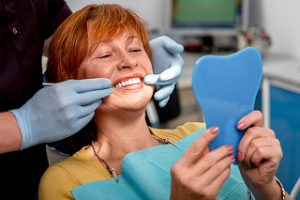
In the first segment of this series I discussed the role of caregivers in early dental care. Prevention starts as early as 6 months into pregnancy and continues with essential steps early in a child’s life. The second segment discussed dental care for children as they develop. In this final segment I will discuss easy prevention and maintenance steps to take to help ensure dental health for a lifetime.
As I stated a few weeks ago, in preventive-based dental practices we go far beyond saying to patients, “you need to brush and floss more.” We truly believe that dental disease, both dental caries (cavities) and gum disease, is very preventable. However, we recognize that not… (Read More)




